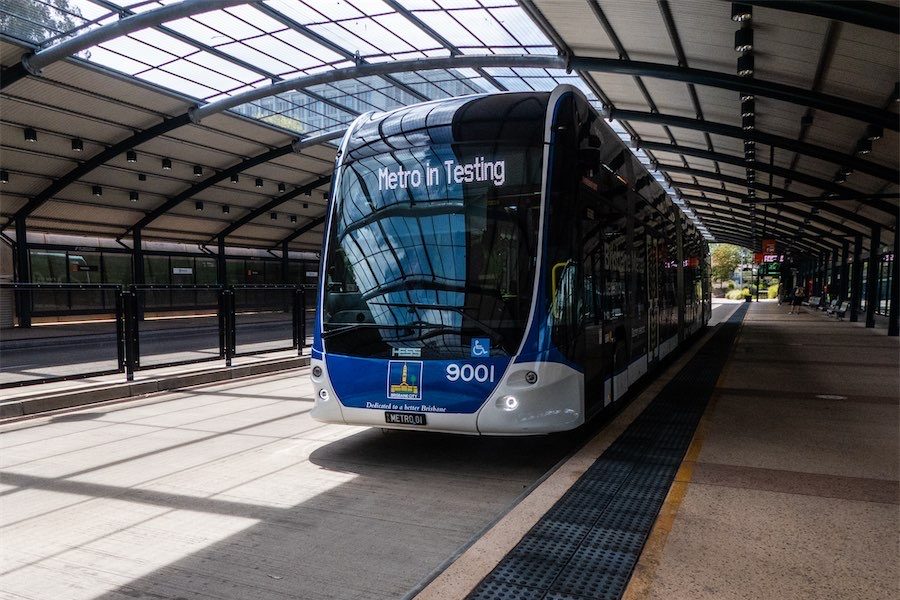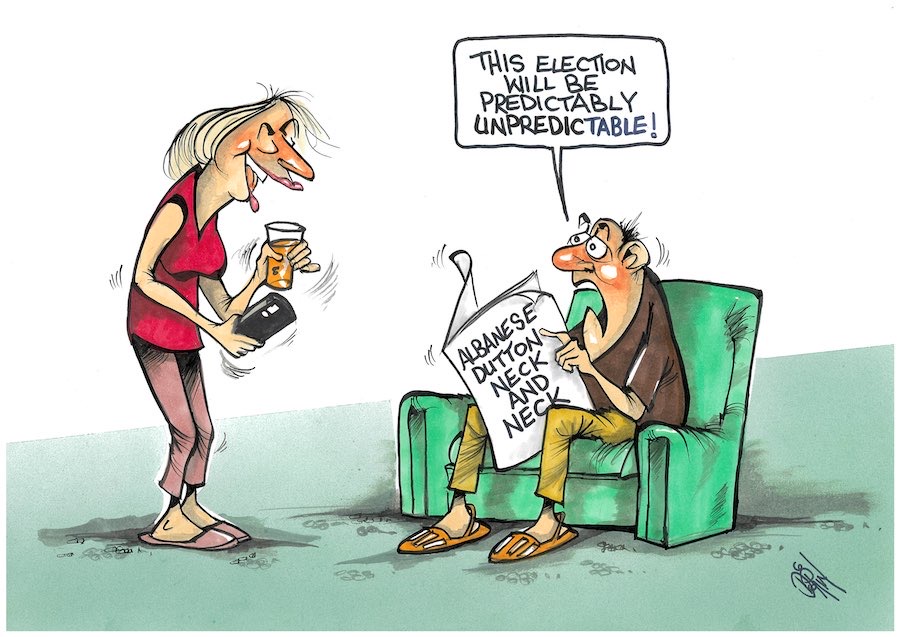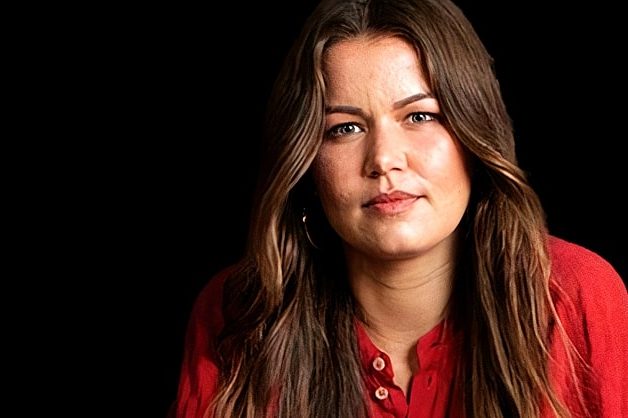
Letter writer MIKE QUIRK wonders why the ACT government didn’t analyse the relative cost of alternatives for the light rail extension to Woden?
The light rail (LR) extension to Woden continues to divide the community.
Some see the project as essential in meeting the future transport needs of the city and in reducing car use. They argue high patronage and the increase in development around the Gungahlin-to-Civic Stage is evidence of LR achieving these aims.
The positive attitudes are understandable, but they have been formed in the absence of an informed understanding of the costs and benefits of the project.
The government has portrayed the choice as between LR and car use, failing to acknowledge other strategies to reduce car use, especially the potential of bus rapid transport (BRT).
Analysis for the Civic-to-Gungahlin stage indicated BRT would produce a similar level of benefit as LR at half the cost. Improved technology, in evidence in the Brisbane Metro, demonstrates BRT can provide a level of comfort and service comparable to LR, at lower cost.
Why didn’t the government analyse the relative cost of alternatives for the extension to Woden?
Given its high accessibility to employment, services and facilities, the Northbourne Avenue corridor was identified for higher-density development in the Territory Plan in the early 1990s. It is hardly surprising the increased demand for higher-density housing has resulted in significant redevelopment in the corridor. It also led to increased higher-density housing in other areas with high accessibility including the town centres and Kingston, areas not served by LR.
In an environment of high levels of debt, uncertainty, unmet health and social housing needs and the need for resources to construct housing, how could the construction of the highly expensive and disruptive LR stage 2a be a priority?
Deferring the extension to Woden should be considered and the penalties involved disclosed.
Mike Quirk, Garran
We should become part of NSW
Struggling to make ends meet; major health cost and servicing problems; expensive legal, judicial, educational systems; a costly and complex quasi-parliamentary set-up; over reliance on land charges; beholden to property developers; making a meal of light rail; limited local public service skills; struggling municipal services; a complex conflicting and compromised land-leasing and zoning system… the list goes on for today’s ACT.
Apart from areas clearly needing Commonwealth planning and design controls (mostly already defined in the National Capital Plan), maybe it’s time for the ACT to become part of NSW, and to have several local councils.
Jack Kershaw, Kambah
Amazed at Andrew Barr’s gall
I was amazed by Andrew Barr’s gall (CN February 13) to claim that under his government “service delivery performance was better than average”.
My strong memory is that hospital wait times in emergency and for surgery were among the poorest in the country .
I was also amazed at him touting his financial management performance. I well remember him claiming that building the Gunghalin Drive extension as a two-lane highway (and then converting it to four lanes), was fiscal responsibility. He also refused to state how much extra it cost. This is the greatest example of Orwellian political “Double Think” I can remember.
He also presided over the dog’s breakfast redevelopment of Canberra Hospital, which to my mind was both costly and the result very disappointing.
Peter Boal via email
Why I’m not cheering for Sam Kerr
While there are many who are cheering Sam Kerr’s recent victory in the English Courts, I am not one of them.
Kerr’s behaviour, during her drunken taxi ride, after a night out partying in London and afterwards in the Twickenham Police Station, was both despicable and disgusting.
She has disgraced herself, the women’s soccer game, her English football club Chelsea, Football Australia and the Matildas, the national team she’s been privileged to captain since 2019.
Kerr called Police Constable Lovell, “f***ing stupid and white”, later stating in court: “I believed (they) were treating me differently because of what they perceived to be the colour of my skin”.
Football Australia needs to grow a moral backbone and spare us from their platitude-filled, media releases.
Sam Kerr should be stood down from the Matildas, both as team captain and team member, effective at once and indefinitely.
Declan Mcgrath, via email
Because Peter Dutton stirred the pot
In the letter “Three flags at the same time is nonsensical” (CN February 13) it’s claimed the Labor government’s practice of displaying the national flag and the two First Nations flags together “was done for purely crass political reasons and nothing else”.
This criticism could equally apply to Peter Dutton’s desire to remove the two First Nations flags as an attempt to curry favour with those who opposed the Voice.
The letter also claims, quite erroneously: “Less than a handful of other countries worldwide display more than one flag simultaneously”. All 29 member countries of the European Union display together their national flags and the EU flag.
Many people have allegiances to more than one flag. I’ve seen Indian flags at the cricket, Croatian, Greek and Italian flags at soccer, and the Eureka flag at union gatherings, just to name a few.
Why have we begun getting our knickers in a knot over flags when there are so many more important matters to be addressed in First Nations affairs? The answer is because Peter Dutton stirred the political pot.
Bill Bowron, Wanniassa
Empathy was ‘lacking’ in Burangiri closure news
Watching the announcement of the June closure of the Burangiri respite health facility, I feared to think how the news, presented almost jauntily by the very fashionably dressed health minister, would be received by the clients and their carers making use of this essential service.
There is no compassion here. Many are low-income clients, not having the means to arrange alternative care when being discharged from hospital or needing respite care. My disabled, pensioner brother was one such client after heart bypass surgery.
Justification of the decision to close is placed on the federal government not providing funds and the need for upgrading.
Surely, with the great lack of such facilities in the ACT, the government could see the need to maintain and upgrade this facility, which has given essential care over many years.
Maybe, if our elected representatives were unfortunate enough to experience the hardships of many of the clients, this decision would not so easily be made. Empathy is totally lacking here.
E Mary Barker, via email
Impressed by Canberra’s exhibitions and galleries
Canberra is truly lucky to have such impressive public galleries and exhibitions.
While everyone knows about Pompeii, there is another in the National Museum that is worthy of note, but strangely not found on its website. The Great Kimberley Wilderness virtual-reality adventure takes you on an unforgettable journey soaring over the red cliffs, gorges and waterways with commentary by Luke Hemsworth, scientists and traditional owners in locations tourists would never get to.
It shows four times daily, lasts 35 minutes and is well worth the $20. Another exhibition until April at the National Archives is 20 Years of Australian Geographic Nature Photographer of the Year.
The quality of these images must be seen to be believed. It is a real privilege to see 20 years of winning nature photographs (mostly animals) on display in the same room. The whole family will love it, and it’s free. What a spectacular country we live in.
Ray Peck, Hawthorn, Victoria
Get rid of costly welcome to country ceremonies
The federal Opposition recently highlighted how much the public service was spending on welcome to country ceremonies.
They obtained records through freedom of information that, they said, revealed more than $450,000 was spent by 21 government departments across Australia on welcome to country ceremonies in the past two years.
James Stevens, the opposition spokesman on government waste, noted that among the biggest spenders on the list was the Department of Prime Minister and Cabinet, which spent $41,801, at an average cost of $1266 per ceremony.
Enough is enough, get rid of it; it’s a nonsense, go-nowhere sore that lingers to many people’s dismay.
John Lawrence via email
No mention of the role of the family
Jenny Stewart’s column “Advance Australia … before it’s all too late, please” CN, February 13-19) has addressed the sickness of a declining, but still affluent, Australian nation.
I am sure Australia with its vast expanse and natural resources will survive and prosper as an evolving nation.
The challenge for the current Australian nation, with its roots in the Anzac spirit and egalitarianism, is does it want that culture to survive? If so, a fertility rate of 1.5 won’t do it.
If I were to be critical of Jenny Stewart’s analysis of the pathway for Australia to a “distinctive presence in the arts, science, technology and innovation” it is her emphasis on the role of government without any mention of the fundamental role of the family.
The noted English social critic and philosopher Roger Scruton said the family is the single most efficient means ever devised for conserving the material, cultural and spiritual capital of one generation and handing it on to the next.
The family Australia needs is built on fidelity and sacrifice, not materialism. If a child suffers adversity but has love, it will be better for it. It gives the child the emotional security necessary for learning.
Thus, in education, if we send students to university who can’t even spell or recite the multiplication tables, there will be no engineers or scientists and hence no innovation.
John L Smith, Farrer
Respect for people of faith missing
It reflects poorly on our community that columnist Robert Macklin thinks it is fine for him to use his regular Gadfly column to angrily attack religion, especially Christianity, and to ridicule and offend people who have faith in God.
In CN 25 July 25, he called people who pray mad and declared the bible to be full of fables and fanatics. In CN January 2, he asserted that anyone with faith is delusional and the only way to ensure progress and achievement and save the planet is the victory of scientific truth.
Alas his assertions in support of his “new atheist” fundamentalism are superficial and flawed.
Mr Macklin suggests that the scientific method stands for truth in opposition to the fantasy of religion and names, as its heroes, Socrates, Galileo, Copernicus, Isaac Newton and Charles Darwin.
What he fails to acknowledge is that many of these scientists held a belief in God at the same time as they pursued scientific discovery.
In CN January 30, the latest target of Mr Macklin’s animus towards religion is David Brooks, a well-regarded journalist who writes for the New York Times.
Mr Macklin laments that Mr Brooks set out in his NYT column his “spiritual saga from woe to go”.
Mr Macklin mocks Brooks’ experience of seeing his fellow subway travellers as having souls “that gave them infinite value”. Mr Macklin questions why Brooks didn’t attribute souls to all the other creatures of the universe.
I would encourage Mr Macklin, an apparently experienced journalist and author, to heed his fellow journalist’s attitude and learn to respect people who have a very different view about faith in God and the hope and authentic meaning it offers.
Mr Macklin is, of course, entitled to put forward his opposing position but he has to back it up with something more than offensiveness and ridicule.
Paul Ross, Googong, NSW
Trump leads his submissive ally, Australia
In his Gadfly column “Trump’s climate call is America’s day of infamy” (CN, February 20) Robert Macklin noted US President Donald Trump’s second withdrawal from the Paris Agreement on climate change.
Trump is now leading America (and its submissive ally, Australia) in the opposite to the “Paris direction” with a battlecry to the oil and gas industries: “Drill, baby drill”.
Mr Macklin also commented on Australia’s Defence Minister Richard Marles’ $800 million downpayment to US Defense Secretary Pete Hegseth on a nuclear-powered submarine “that might (or might not) be delivered in 20 years or so”.
The first submarine might be delivered in 20 years time, but the last of eight boats may not be delivered until the 2040s – if at all.
Mr Macklin is right about “a sucker being born every day”. Why else would the Australian government continue to struggle in the mess that was left behind by former prime minister Scott (“five ministries”) Morrison?
Dr Douglas Mackenzie, Deakin
Who can be trusted?
In a world of spin and confusion, there’s never been a more important time to support independent journalism in Canberra.
If you trust our work online and want to enforce the power of independent voices, I invite you to make a small contribution.
Every dollar of support is invested back into our journalism to help keep citynews.com.au strong and free.
Thank you,
Ian Meikle, editor









Leave a Reply